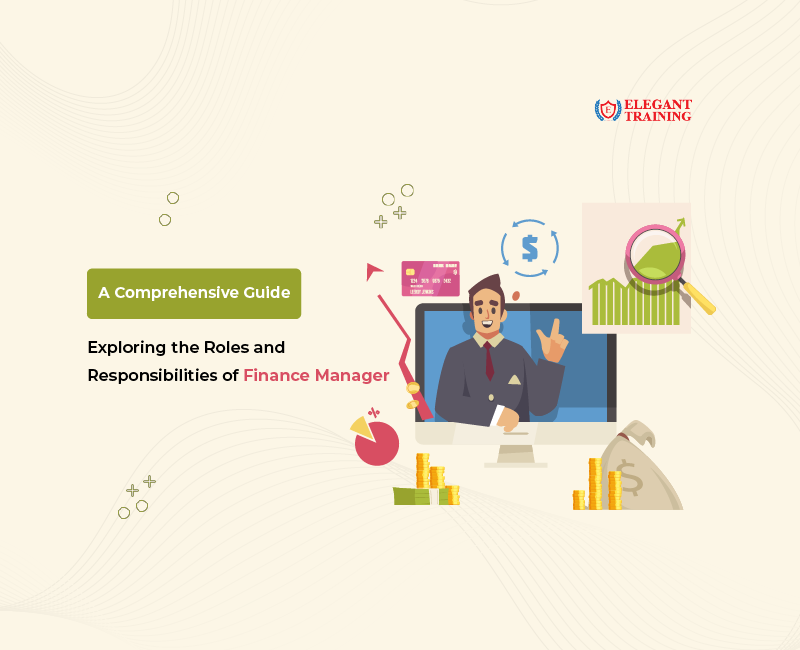The insurance industry is a complex and rapidly evolving field that requires effective financial management to ensure the stability and profitability of insurance companies. At the heart of this financial management is the insurance finance manager, a professional responsible for overseeing the financial operations of an insurance company. In this article, we will explore the role of an insurance finance manager, their responsibilities, and the skills required to excel in this position.

Who is an Insurance Finance Manager?
An insurance finance manager is a senior-level professional responsible for managing the financial activities of an insurance company. They are responsible for ensuring that the company’s financial operations are conducted in accordance with regulatory requirements, industry standards, and corporate objectives. Insurance finance managers work closely with other executives, such as the CEO, CFO, and risk management teams, to develop and implement financial strategies that support the company’s overall goals.
Responsibilities of an Insurance Finance Manager
The responsibilities of an insurance finance manager are diverse and far-reaching. Some of the key responsibilities include:
- Financial Planning and Budgeting: Developing and implementing financial plans and budgets to ensure the company’s financial stability and profitability.
- Risk Management: Identifying and assessing financial risks, such as market risk, credit risk, and operational risk, and developing strategies to mitigate these risks.
- Investment Management: Managing the company’s investment portfolio to ensure that it is aligned with the company’s financial objectives.
- Regulatory Compliance: Ensuring that the company’s financial operations are conducted in accordance with regulatory requirements, such as Solvency II and IFRS.
- Financial Reporting: Preparing financial reports, such as the balance sheet and income statement, to provide stakeholders with a clear picture of the company’s financial performance.
- Capital Management: Managing the company’s capital to ensure that it is sufficient to meet regulatory requirements and support the company’s growth objectives.
- Mergers and Acquisitions: Evaluating potential mergers and acquisitions to determine their financial impact on the company.
Skills Required to be an Insurance Finance Manager
To excel as an insurance finance manager, an individual requires a combination of technical, business, and soft skills. Some of the key skills include:
- Technical Skills: Proficiency in financial modeling, data analysis, and financial reporting.
- Business Acumen: Understanding of the insurance industry, including market trends, competitor activity, and regulatory requirements.
- Communication Skills: Ability to communicate complex financial information to stakeholders, including executives, regulators, and investors.
- Leadership Skills: Ability to lead and manage a team of finance professionals, including providing guidance and development opportunities.
- Risk Management Skills: Ability to identify and assess financial risks and develop strategies to mitigate these risks.
- Problem-Solving Skills: Ability to analyze complex financial problems and develop creative solutions.
- Time Management Skills: Ability to manage multiple deadlines and priorities in a fast-paced environment.
Qualifications and Education
Insurance finance managers typically hold a combination of academic and professional qualifications, including:
- Bachelor’s Degree in Finance or Accounting: A degree in finance or accounting provides a solid foundation in financial principles and practices.
- Professional Certifications: Professional certifications, such as the Chartered Financial Analyst (CFA) or Chartered Insurance Professional (CIP), demonstrate expertise in finance and insurance.
- Master’s Degree in Finance or Business Administration: A master’s degree in finance or business administration provides advanced knowledge of financial principles and practices.
Challenges Facing Insurance Finance Managers
Insurance finance managers face a range of challenges, including:
- Regulatory Requirements: Ensuring compliance with regulatory requirements, such as Solvency II and IFRS.
- Financial Risks: Managing financial risks, such as market risk, credit risk, and operational risk.
- Competition: Managing competition from other insurance companies and financial institutions.
- Technology: Staying up-to-date with the latest financial technology, including data analytics and risk management systems.
- Talent Management: Attracting and retaining top talent in a competitive job market.
FAQs
- What is the average salary of an insurance finance manager?
The average salary of an insurance finance manager varies depending on factors such as location, experience, and company size. However, the average salary range is typically between $80,000 and $150,000 per year.
- What are the typical working hours of an insurance finance manager?
Insurance finance managers typically work long hours, including evenings and weekends, to meet deadlines and manage financial risks.
- What are the key skills required to be an insurance finance manager?
The key skills required to be an insurance finance manager include technical skills, business acumen, communication skills, leadership skills, risk management skills, problem-solving skills, and time management skills.
- What are the typical qualifications and education required to be an insurance finance manager?
The typical qualifications and education required to be an insurance finance manager include a bachelor’s degree in finance or accounting, professional certifications, and a master’s degree in finance or business administration.
- What are the typical responsibilities of an insurance finance manager?
The typical responsibilities of an insurance finance manager include financial planning and budgeting, risk management, investment management, regulatory compliance, financial reporting, capital management, and mergers and acquisitions.
Conclusion
The role of an insurance finance manager is a critical one, requiring a combination of technical, business, and soft skills. Insurance finance managers must be able to manage financial risks, ensure regulatory compliance, and make strategic decisions to support the company’s growth objectives. To excel in this position, individuals must be well-versed in financial principles and practices, have excellent communication and leadership skills, and be able to work well under pressure. With the right skills and qualifications, insurance finance managers can play a key role in ensuring the financial stability and profitability of insurance companies.
Closure
Thus, we hope this article has provided valuable insights into The Role of an Insurance Finance Manager: A Comprehensive Guide. We hope you find this article informative and beneficial. See you in our next article!